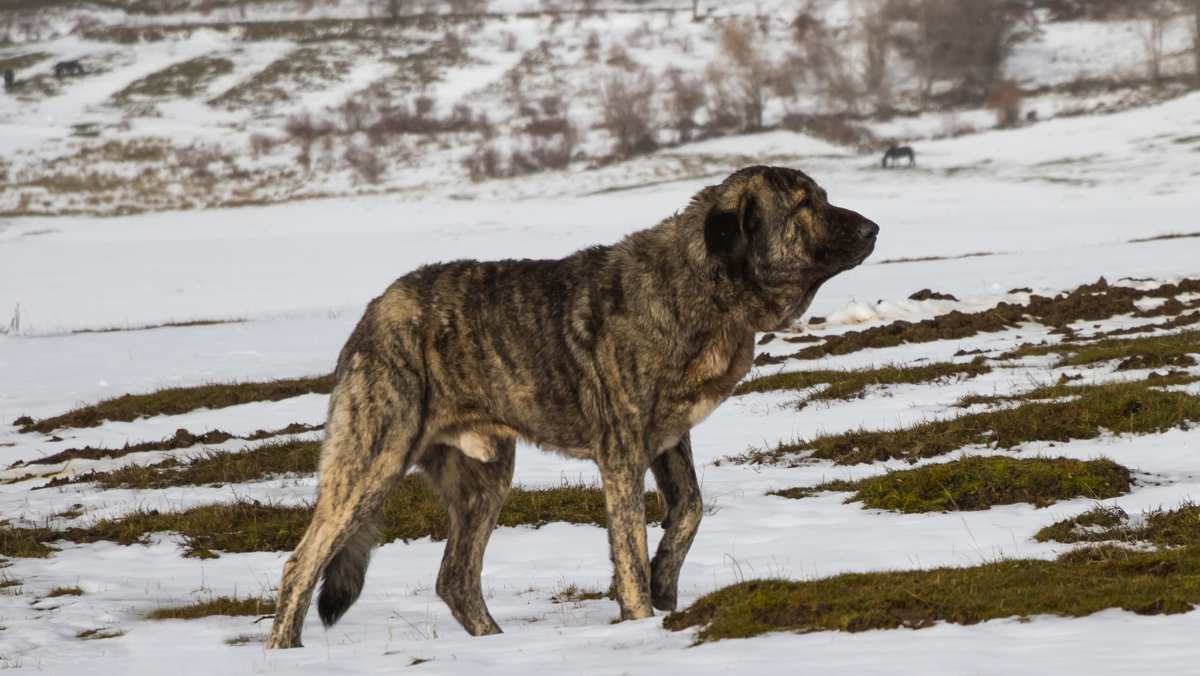Spanish Mastiff Breed Details
The Spanish Mastiff is a livestock dog. They are generally bred and trained to protect herds, but they have become popular as companion dogs too. These dogs are not recommended for first-time families or those households with young or very small children. They are big dogs, but it is very rare to hear about a Spanish Mastiff attack.
PROS
- Loves to play
- Great watchdog
- Extremely loyal
- Superb guard dog
- Calm personality
- Doesn't bark much
- Very affectionate
- Highly protective
CONS
- Drools a lot
- Matures very slowly
- Extremely large dog
- Must be trained correctly
- Requires a lot of exercise
- Has a lot of health problems
- Can be accidentally harmful around toddlers and very small children
